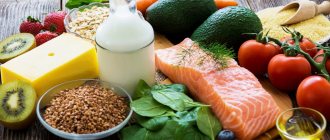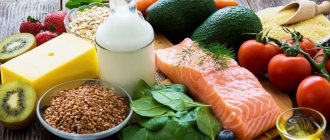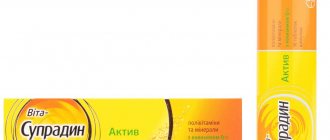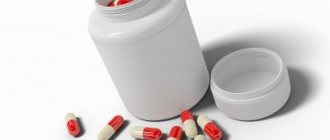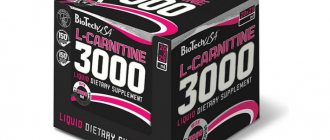Sports nutrition is well known to those who lead an active lifestyle. It is easy to buy not only in a specialized place, but also in an online store, it is varied, and sometimes quite tasty. And often it is really necessary for amateur and professional athletes.
Our expert, Russian powerlifter, winner of the World Games, absolute champion of the world, Europe and Russia, world record holder, Honored Master of Sports, current member of the Russian national team Andrei Konovalov, will help you figure out who needs sports nutrition and when and what is right for you.
Who needs sports nutrition?
Let's start with the fact that the possibilities of sports nutrition are greatly exaggerated. Without regular training and a properly selected varied diet, it is virtually useless. Doctors and fitness experts agree that in the first months of training, the most ordinary, but balanced food is enough to meet all the body's needs.
When should you start taking sports nutrition?
“If you have a balanced diet, you always have fresh vegetables and fruits, you accurately get essential amino acids from animal protein and can organize your meals in a timely manner, then you can safely do without supplements and sports nutrition. But let's admit to ourselves that this is an ideal picture. Even those who achieve it fail to follow the rules of nutrition every day.”
Of course, the basis of any diet is traditional food. Analyze your diet before supplementing it with sports nutrition. An important difference between truly working sports nutrition and “dummies” is that it contains elements that are either synthesized by the human body or enter the body with regular food, but in insufficient quantities.
Why is it needed, sports nutrition?
Why do you need sports nutrition?
Why do you need sports nutrition? This question often worries newcomers to sports. Sometimes even experienced bodybuilders believe that borscht with sour cream and navy pasta are enough to grow muscles. This is mistake. The thing is that ordinary food does not contain many proteins and other substances useful for an athlete, as a result of which one would simply have to consume meat, dairy, and fish for several hours in order to satisfy the need of all muscles for the necessary substances. No healthy person can do this. In this article we will look at the question of why you need sports nutrition, and what specific options are right for you.
First of all, the need for sports nutrition is felt during heavy loads, when the muscles urgently need to be supplied with useful substances. Otherwise, their further growth is impossible. It is necessary to provide the body with the entire necessary set of substances and components. It, by itself, of course, synthesizes various amino acids and proteins, but they are sufficient only for the average person who does not lead a sports lifestyle at all. In addition, not everything that is needed is synthesized in the body and it is highly desirable to obtain additional substances. Sports nutrition will help you gain strength, endurance, get the full amount of vitamins and other important components.
Girls and sports nutrition
Do girls need sports nutrition? The question is open, since, of course, they do not need such powerful muscles as men. However, there is a category of girls who also work for the masses, and it is advisable for them to take sports nutrition. In addition, among the products of the modern sports nutrition market there are many fat burners, which, in combination with training and diet, allow you to destroy excess fat, calories, and in general, feel especially good, having enough strength for training. Fat burners are recommended for girls by many nutritionists as an excellent means of combating fat deposits and bringing their figure back to normal.
Other Health Benefits of Sports Nutrition
Some pseudo-experts claim that sports nutrition is “chemical”, is addictive and generally harmful to the body. This is one of the most common myths with which our earth is full. It consists of the same components that we eat in food, only in large concentrations designed for the needs of the athlete, it consists of natural products, and in most cases it often contains substances that cannot be obtained from regular food (if you, Of course, don’t drink fish oil by the spoonful).
Another positive feature of sports nutrition is its effective fight against catabolism. Certain chemical reactions occur in the body after training, some of which, in order to maintain balance and rest after training, may be aimed at destroying muscles. This phenomenon has a name - catabolism. But sports nutrition is designed in such a way that it is possible to fill the resulting “window” with the necessary nutrients and, as a result, catabolic processes are prevented and the state of muscle destruction is overcome.
There are certain periods during the day for catabolism. For example, at night and in the morning, when muscle glycogen storage is at its lowest point, the body resorts to breaking down muscles for energy. Some types of sports nutrition include long-digesting protein and “slow” carbohydrates that nourish the body throughout sleep. Thus, muscle destruction does not occur due to the adequacy of the consumed chemicals. In general, it is difficult to describe all the beneficial qualities of sports nutrition in one article. This is a real “lifesaver” for modern athletes, but every new product is one way or another surrounded by rumors and speculation, because not every average person has time to “keep up” with the ideas of modern scientists.
Sports nutrition what you need to know?
Sports nutrition is the same substances that we get from food, only in higher concentrations and with a better formula that ensures excellent absorption.
Sports nutrition is divided into several main categories:
- Protein and carbohydrate mixtures
- Amino acids
- Fat burning drugs
- Vitamin and mineral complexes
- Special preparations
Protein and carbohydrate mixtures consist of protein shakes, gainers and carbohydrate energy drinks. Protein shakes contain all the necessary proteins that will be beneficial to the athlete. This includes whey, due to which muscle growth and development occurs, and casein, which serves as a long-term source of nutrition, and many others that are one way or another involved in the process of muscle growth and nutrition.
Gainers are protein-carbohydrate mixtures that help thin people gain weight. They are high in calories and are consumed after training. As a result, it is possible to get rid of the imbalance of proteins and carbohydrate components in the body. However, they should only be taken by those who really want to gain weight, and therefore the range of their use is extremely limited.
Carbohydrate energy drinks consist entirely of carbohydrates, with the removal of proteins and fats. You should only drink them during intense training to replenish your energy reserves. If you use them without an appropriate load on the muscles, they will turn into fat deposits, and this will then have to be burned off. However, you need to remember that carbohydrate energy drinks are not what is sold in stores. Widely advertised energy drinks are made with caffeine and lots of sugar, not carbohydrates. Therefore, do not confuse these products. For carbohydrate energy drinks, go exclusively to a sports store, and not to the eatery around the corner.
Amino acids are a component of proteins. Not all of them enter the body during nutrition, and therefore regular replenishment is necessary. Modern sports nutrition contains the optimal amount of amino acids, so that you provide the body with all the necessary compounds.
Vitamin-mineral complexes are necessary because athletes sweat out a lot of useful substances during training. In addition, increased concentrations of vitamins and minerals in the blood are necessary for muscle growth. In this regard, this type of sports nutrition is extremely important for any athlete. The selection of such complexes is carried out based on the type of training, its intensity, the biochemical needs of the body, and the characteristics of the area. It is not recommended to exceed the dosage, as they are useful in moderation.
Specialty supplements often include creatine, beta-alanine, testosterone boosters, and several others. This is a special type of sports nutrition, before consuming it you should consult your doctor. Such supplements can simply work wonders, although they should be taken with an eye to the health risks. Creatine can be taken as a complex, you can read about it on our website, but other substances should be approached with caution and used only when absolutely necessary.
Do you need sports nutrition?
So, we have looked at all the key types of sports nutrition and the question arises: is it necessary? The thing is that sports nutrition is now of good enough quality to deny yourself the pleasure of consuming it. It provides an invaluable service in the process of muscle development. The only thing is, if you are a beginner and don’t strain yourself too much in the gym, you can limit yourself to a normal diet at first, but as your training intensifies, it is highly advisable to gradually include its components in your diet and everything will be all right.
Pros and cons of sports nutrition
pros
- Convenience.
Sports nutrition is sold both in capsule and powder form. In the latter case, it can be easily diluted in a shaker right in the gym locker room, without worrying about how to quickly snack immediately after a workout.
- Price.
At first glance, it seems that the price of, for example, protein is quite high. However, in terms of the cost of high protein products, protein powder is cheaper.
- Dosage.
You can calculate the amount of sports nutrition required depending on your weight and degree of physical activity.
- Varying your diet.
Eating a regular meal before a workout or at night is not recommended, but a protein shake will give you energy and improve performance without the heavy stomach feeling. And on the contrary, in cases where it is necessary to eat strictly according to the clock, but there is no opportunity (at work, in transport, at a meeting), sports nutrition will save the situation.
Minuses
- Possible health problems.
With a systematic “overdose” of protein, there is a risk of problems with the liver, which can only absorb a certain amount of protein per day. An excess of creatine is sometimes caused by diseases of the kidneys and excretory system. That is why it is so important to strictly follow all instructions for taking sports nutrition and under no circumstances replace it with a good diet.
- Discomfort in the gastrointestinal tract.
What is sports nutrition
Sports nutrition is a special complex of nutrients based on natural components of plant and animal origin. The main goal of sports nutrition is to improve the body's performance.
Sports nutrition and supplements are recommended for all people who are passionate about sports: professionals, amateurs, beginners. Due to sports and constantly increasing loads, the body expends a lot of energy and consumes more nutrients, the lack of which can seriously affect both endurance and final results. Sports nutrition will help fill the lack of necessary components.
For what purposes are sports nutrition used?
- For gaining weight (including muscle);
- As supplements that promote fat burning (weight loss);
- For intensive recovery after physical activity;
- Strengthening joints and ligaments;
- Toning the body, increasing energy.
Criteria for choosing sports nutrition
Despite the fact that many athletes prefer foreign-made sports nutrition, Russian proteins and supplements are not inferior in quality. Here's what our expert says about it.
“Disputes about imported and Russian manufacturers are ongoing. But if we analyze this niche from the point of view of composition, it turns out that all raw materials and components are either imported or quasi-imported.”
Interesting data. Whey protein (the best in terms of absorption rate, amino acid profile and abundance) is produced mainly in the EU countries, Australia and New Zealand. The raw material for whey protein is whey, a by-product of cheese making and the production of curd products. In the post-Soviet space, we know only in Latvia an example of the production of whey protein (raw materials).
In the last 5 years, Russia has also begun producing specialized sports nutrition, but the production capacity of domestic companies can cover no more than 1% of market needs. If you compare, for example, the quality of Russian and imported protein, you will not see the difference. Advanced athletes, as a rule, choose according to taste and composition: flavors, vitamin premix, dietary fiber, additional inclusions (pieces of freeze-dried fruit, etc.) are equally important to them.
Two simple tips for those who have not yet found the right sports nutrition for themselves:
- buy not from hand, but in specialized places and online stores;
- carefully study the composition for the presence of substances that may cause you food intolerance or allergies.
Types of sports nutrition
There are many types of sports nutrition, each type has its own characteristics. Let's look at the most popular types of sports nutrition.
- Protein
. Protein is the most common type of nutritional supplement for both professional athletes and beginners. The protein mixture consists of protein, which will help in building muscle mass. The supplement is made from dairy products, legumes, plant components and meat. Take the protein mixture before, during or after training. - Gainers
. Gainers are a carbohydrate-protein mixture that is taken to gain weight. Due to their high calorie content, they are taken instead of a full meal or after training for quick recovery and toning. - Fat burners
. A popular type of drugs aimed at accelerating weight loss and dissolving fat. It is recommended to consume fat burners in the first half of the day and before starting training. - Hypotonics and isotonics
. This group includes supplements rich in vitamins and minerals that help restore water and salt balance after exercise. Hypotonics and isotonics help the body recover and minimize the risk of seizures. The main consumers of this group of sports nutrition are athletes who experience prolonged and intense exercise (runners, cyclists). Taken during and after training. - Dietary fitness nutrition
. This is a broad group of dietary supplements that are low in calories. Thanks to such dietary products, it is easy to control your daily calorie intake and lose weight. This also includes a variety of fitness bars that have gained popularity among all athletes.



